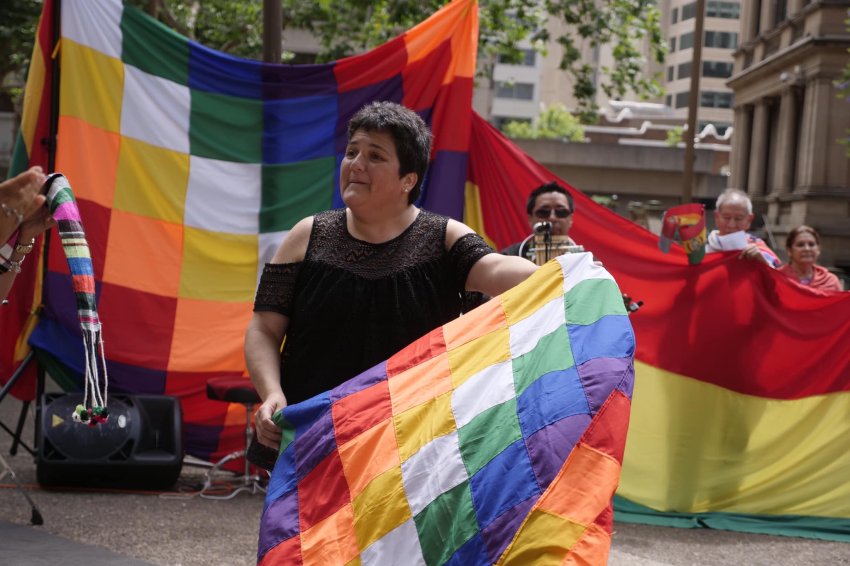
Fue Golpe
Directed by María Fernanda Rada Prado
Spanish with English subtitles
2021. Duration 1h 51min
The approximately two-hour long documentary Fue Golpe chronicles the coup d’etat that unfolded in Bolivia in November 2019 against the country’s elected president Evo Morales and the Movement Towards Socialism (MAS) government.
The Mexican government granted the MAS leaders asylum after they were forced to resign by the Bolivian police and military. The film begins with Morales — the first Indigenous president of Bolivia — as he arrives in Mexico City and into exile.
The documentary recounts Bolivia's popular movements that led the country through a process of democratic transformations. These social movements evolved to mount a campaign in the 2005 Bolivian election, which MAS won. This resulted in poor and marginalised Bolivians finally gaining recognition and representation where none had previously existed. This historical process created the Plurinational State of Bolivia.
Now finally, people could access education, attend university and the country’s diverse population could become involved in creating an economy to benefit the majority of the people, including those the upper-class never previously made concessions to.
However, the Bolivian oligarchs and conservative forces were less than enthusiastic about the creation of a strong state antagonistic towards them. Conservative factions, alongside far-right shock troops set out to distract and delegitimise the MAS government in the lead up to the 2019 election. They set fire to forests, diverting precious state resources, while they campaigned to sow doubt in Bolivian democracy. They also launched a campaign of violent intimidation, with vigilante groups attacking the homes and offices of local government representatives.
All of which — as the documentary demonstrates with considerable footage contradicting the rhetoric passed so uncritically by the Organisation of American States (OAS) — culminated in a coup d’etat.
Fue Golpe features interviews with Morales, former health minister Gabriela Montaño and former senate president Adriana Salvatierra, as well as other prominent Latin American political figures and representatives for the Centre of Economic and Policy Research in Washington DC, as they tell the inside story.
At the time, international institutions such as the European Union failed to denounce the coup plotters, while the OAS swiftly acknowledged the illegitimate Jeanine Áñez coup government.
The strength of the documentary is that it delivers an overview of the events of the coup and provides first-hand accounts of events that back up the MAS’s position that a coup took place. Relying on mobile phone footage of key incidents, the quality of footage used ranges considerably. Unfortunately, this detracts from the viewing experience at times.
More time could have been spent on providing background information, especially for the benefit of viewers without prior knowledge of Bolivian politics.
Overall, Fue Golpe delivers a timely and positively prevailing narrative that refutes accounts that these events were a popular uprising against authoritarianism. Instead, we witness the implementation of a counter-democratic, corporate-aligned plot to take power and attempt to reverse the achievements of the Bolivian people and their government.